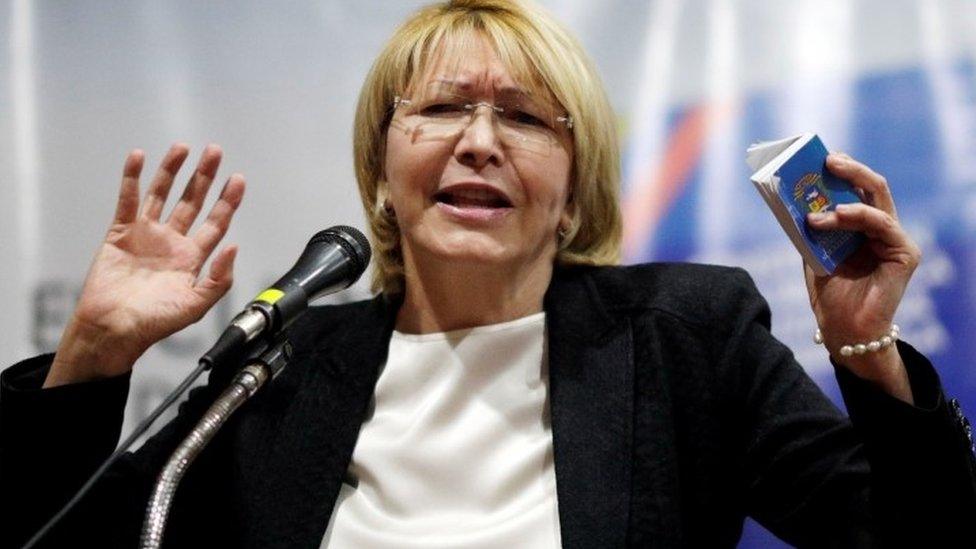Venezuela ex-prosecutor: I have proof of Maduro corruption
- Published
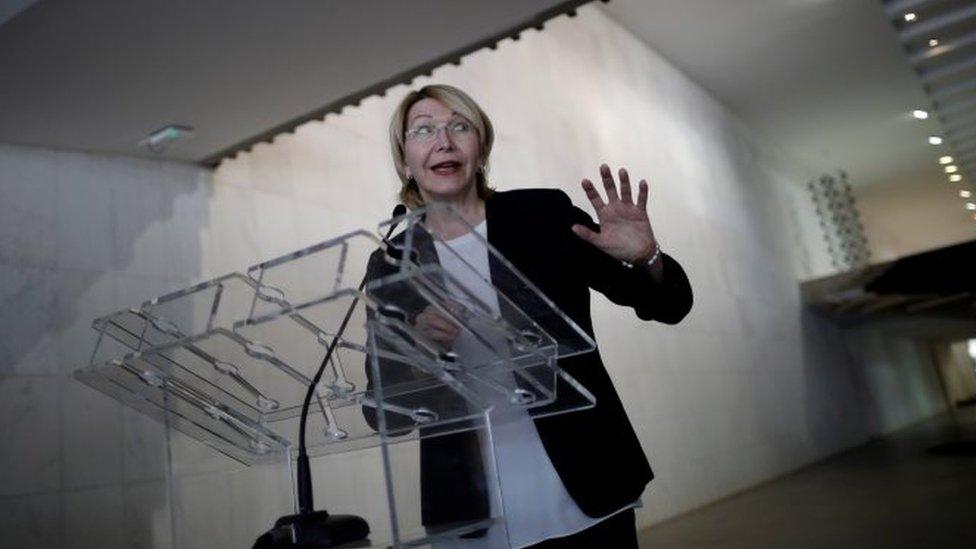
Ms Ortega made her allegations after meeting regional prosecutors in Brazil
Venezuela's dismissed chief prosecutor says she has proof of corruption within the top leadership, including evidence against President Nicolás Maduro.
Luisa Ortega also accused two party leaders and the new prosecutor.
Ms Ortega, who fled Venezuela last week after she was sacked and her husband charged with extortion, says her life is still in danger.
She faces charges of misconduct, amid allegations she ignored corruption cases sent to her while in office.
The ex-prosecutor's latest comments came at a press conference in the Brazilian capital, where she alleged that President Maduro had been involved in a bribery scheme centred on the Brazilian construction giant, Odebrecht.
"I want to denounce, in front of the world, a grave situation in Venezuela: that of excessive corruption," Ms Ortega said.
"I have a lot of proof, concretely in the Odebrecht case, which implicates many high-ranking Venezuelans, starting with the president of the republic."
She implicated the vice-president of the governing PSUV party, Diosdado Cabello, and influential party member Jorge Rodríguez in the Odebrecht case.
Your video guide to the crisis gripping Venezuela
She also accused the new Venezuelan prosecutor, Tarek Saab, of corruption related to the country's state oil company, PDVSA.
But Mr Saab has dismissed her allegations, saying: "There is no validity in what an ex-prosecutor can say after ten years of inaction against any of the people she is talking about now."
There has been no response yet from Odebrecht, which has been at the centre of a huge investigation in Brazil over kickbacks for contracts.
The investigation has led to prosecutions in several countries in Latin America where Odebrecht and other Brazilian construction companies operated.
On Tuesday, President Nicolás Maduro said he would request an international arrest warrant against Ms Ortega and her husband, former loyalist congressman Germán Ferrer.
Mr Maduro said both were working with the United States against his government and had committed serious crimes.
Luisa Ortega made a dramatic exit from her role as chief prosecutor
Venezuela's controversial new constituent assembly sacked her for misconduct, with President Maduro saying she had ignored corruption cases sent to her by the government.
Mr Ferrer is accused of extortion and corruption allegedly happening within the office of the chief prosecutor.
Ms Ortega has said she fears for her life and wants to hand over the documents she is carrying to other countries so they can investigate her allegations.
"The most serious thing," she said, "is that everything is connected to corruption. Everything that has happened to me is because of a series of allegations I have made."
Officials in Colombia who offered her asylum and protection have suggested that Ms Ortega and her husband will seek asylum in the United States.

Why is Venezuela in crisis?

More than 120 people have been killed in anti-government protests since April
President Nicolás Maduro's popularity fell amid attempts to increase his political powers and a deepening economic crisis
This was compounded by the falling price of oil, which accounts for about 95% of Venezuela's export revenues, and led to cuts to the government's social programmes
Basic necessities, such as medicine and food, are in short supply
The opposition accuses Mr Maduro of mismanaging the economy and eroding democratic institutions
His decision to set up a controversial National Assembly, which was elected in July, sparked nearly daily protests, with opponents labelling it a slide towards dictatorship

- Published2 August 2017
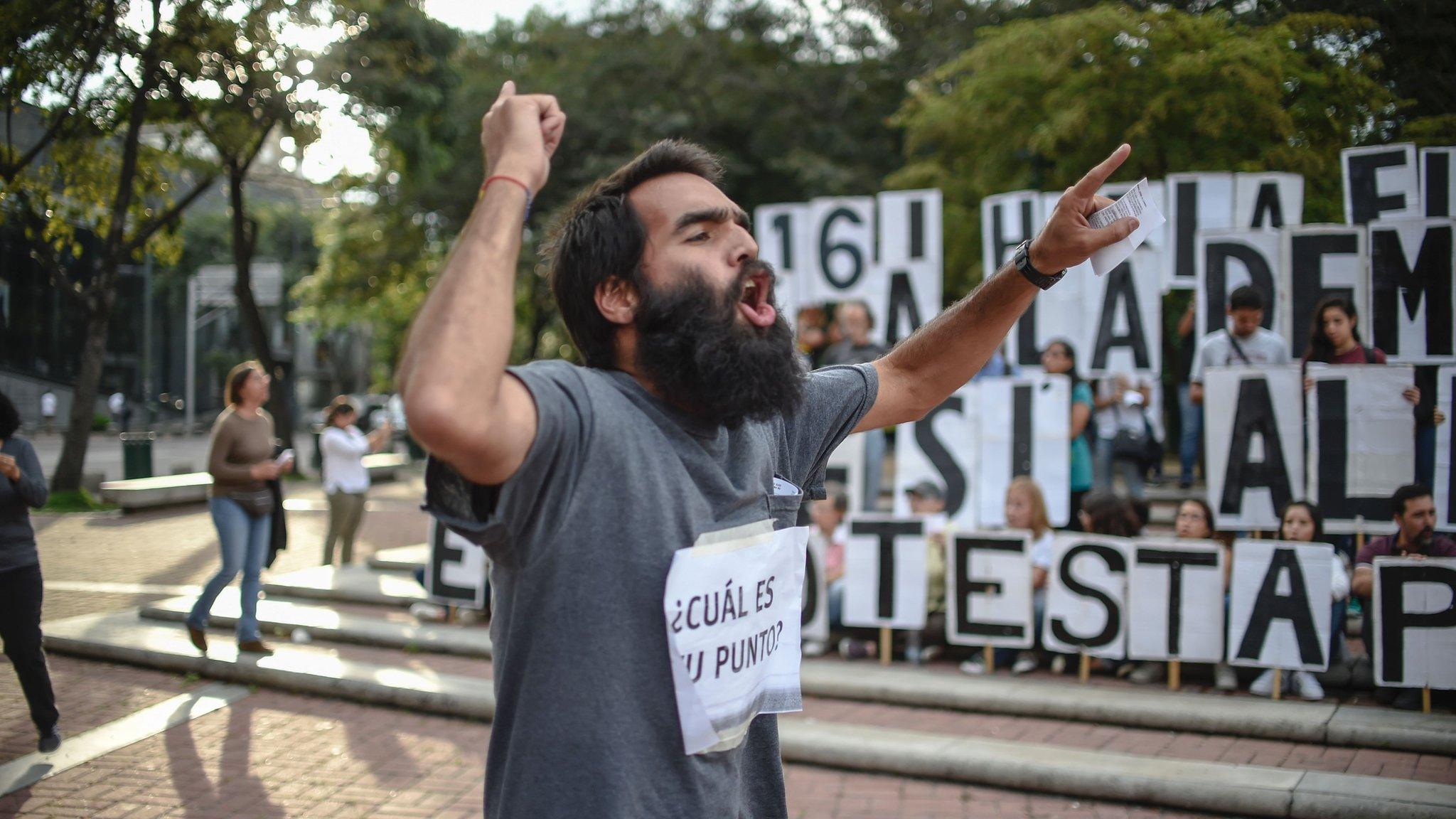
- Published12 August 2021
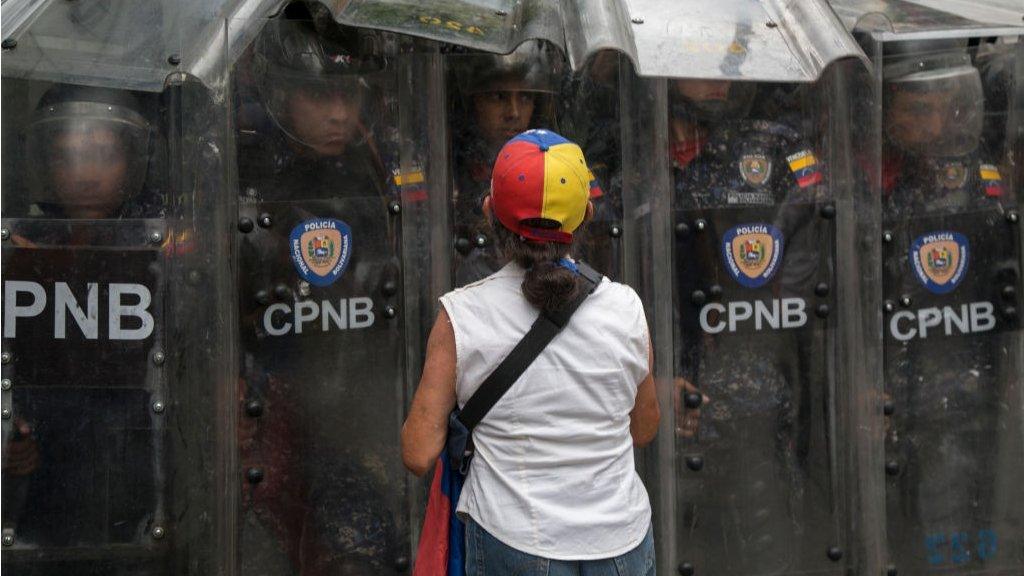
- Published3 August 2017
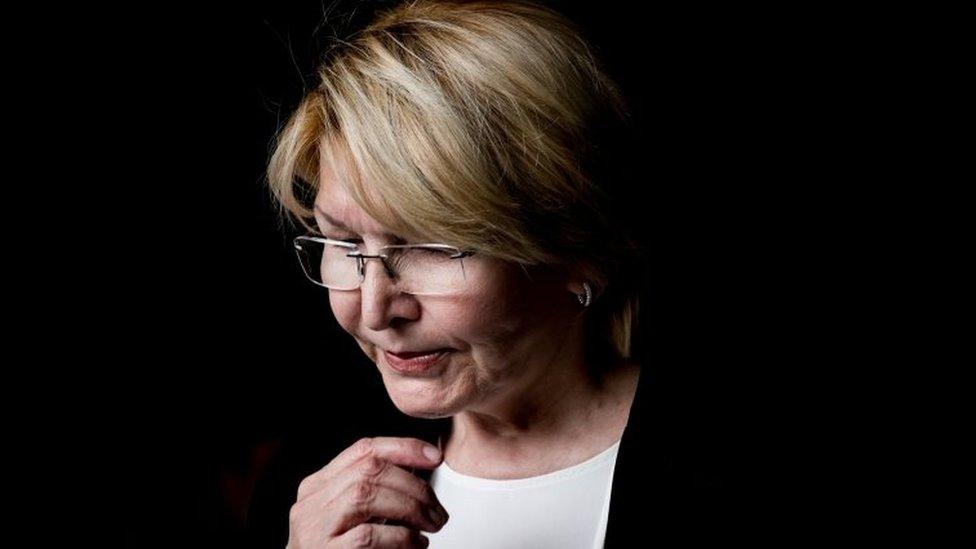
- Published23 August 2017
